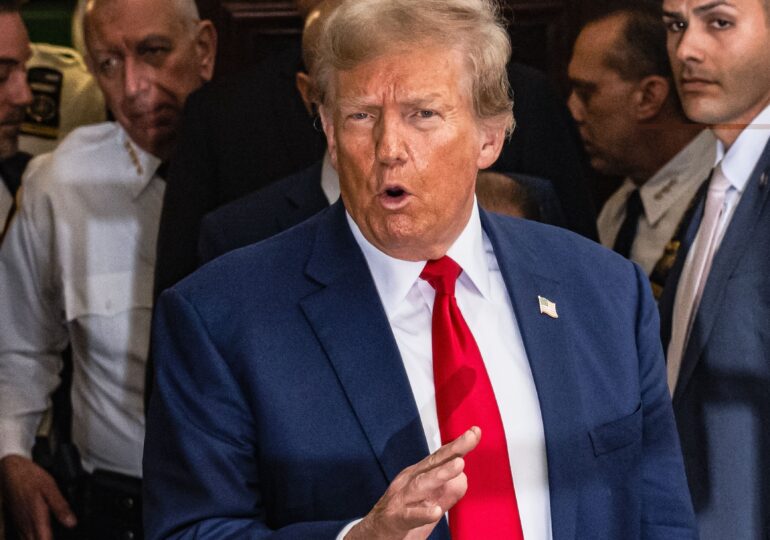Conspiracy theories have already appeared on social media regarding the manipulation of the trial, along with a series of incitements to revolt. The Romanian public is not outside the huge debate about Trump’s conviction, with the presentation of facts being useful.
The former American president was found guilty in a trial that took place in Manhattan, New York, by a total of 12 jurors, with a unanimous decision on each of the 34 charges.
Judge Juan Merchan did not approve the live broadcast of the trial on television or the internet, but for six weeks, it was the main event covered by the entire U.S. media.
The trial was attended in person by hundreds of journalists, legal experts, former judges, and prosecutors, with reporters detailing everything that happened in the courtroom.
On the prosecution side, 14 prosecutors, assistants, and secretaries were involved in the investigation, led by Alvin Bragg, the Manhattan District Attorney.
Donald Trump was found guilty on all 34 charges related to committing accounting document forgery for payments to the porn star Stormy Daniels to conceal a sex scandal that could have affected the 2016 election campaign.
The former U.S. president announced that he will appeal, but in the American judicial system, an appeal does not delay, suspend the execution of the sentence, or overturn the jury's verdict. It is a separate process, and if a different decision is reached, the latest one applies for the future.
In other words, in the appeal, Trump does not have many chances to obtain an acquittal, but only a lighter sentence or its cessation.
Repeated Falsification of Accounting Documents
The 34 charges were divided into three categories: 11 related to Michael Cohen's invoices, Trump's former lawyer who paid Stormy Daniels, another 11 related to checks signed by Donald Trump to pay Cohen from his funds, and 12 charges related to the accounting records made to justify these payments, as reported by New York Times journalists.
On July 11, Judge Juan Merchan will announce the sentence for the former president, following a month and a half of political confrontations, election campaigns, and intense debates around the historic verdict in which, for the first time, a former American president is criminally convicted.
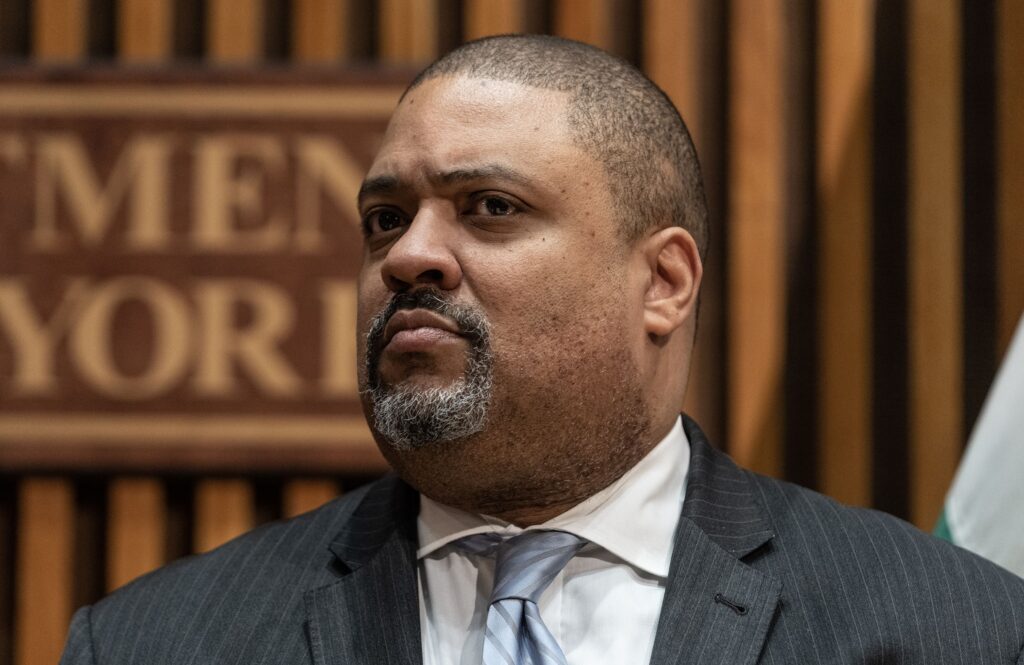
"Donald Trump is guilty of repeated and fraudulent falsification of accounting records, with a plan to hide information that could have harmed him during the 2016 presidential elections," according to a report published by Alvin Bragg, the case prosecutor who won against the former president.
"Over the past few weeks, a jury of 12 New Yorkers received overwhelming evidence - including invoices, checks, bank account statements, audio recordings, phone records, text messages, and direct testimonies from 22 witnesses - proving beyond a reasonable doubt that Mr. Trump illegally falsified 34 accounting records in New York," stated the American prosecutor.
"Donald Trump broke the law and repeatedly lied to protect himself and not jeopardize his political campaign. In the Manhattan district, we pursue the facts without fear or privilege and have the solemn responsibility to ensure equal justice under the law, regardless of the accused's past, wealth, or power. The integrity of our judicial system depends on upholding these principles," announced the American prosecutor.
Contents of the Former President's Case File
Donald Trump was involved in a scheme to corrupt the 2016 presidential elections and made extraordinary and illegal efforts to conceal this conduct from voters and the American public, illegally making dozens of forgeries in the accounting records of his Manhattan-based company in New York, violating electoral laws, as American prosecutors describe the illegal actions committed by the former U.S. president.
The scheme to conceal the use of campaign funds was devised in 2015, at a meeting in the Trump Tower, where an agreement was reached between Donald Trump, his then-lawyer Michael Cohen, and David Pecker, the executive chairman of American Media (AMI), the publisher of the scandal publication National Enquirer, as indicated by the prosecutors involved in the corruption case investigation.
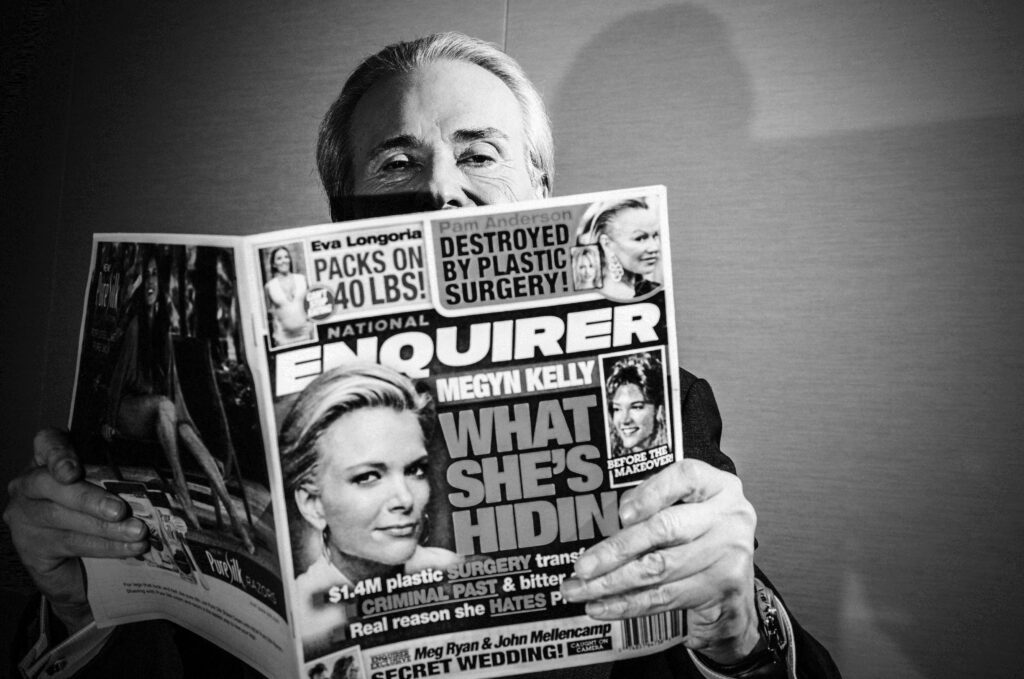
Trump, David Pecker, and Michael Cohen agreed for American Media to prevent the publication of damaging information about Trump.
AMI purchased several stories as part of a strategy to protect Trump's image.
In one instance, American Media paid $30,000 to a former doorman at Trump Tower, who claimed to have a story about one of Trump's children born out of wedlock, write prosecutors in the indictment of the trial.
In another case, AMI paid $150,000 to a woman who claimed to have had a sexual relationship with Trump, other than Stormy Daniels, as specified in the cited document.
The Maze of Forgeries
In the weeks leading up to the 2016 elections, a video was made public on Access Hollywood in which Trump was recorded saying, "You know, I'm automatically attracted to beautiful women, I just start kissing them, it's like a magnet, just kiss. I don't even wait. And when you're a star, they let you do it, you can do anything, grab them by the p****, you can do anything," he said, in the locker room of a golf club with people from his entourage.
The day after the recording's release, the editor-in-chief of the National Enquirer urgently informed Michael Cohen that the porn actress Stormy Daniels planned to disclose details about her romantic relationship with Donald Trump.
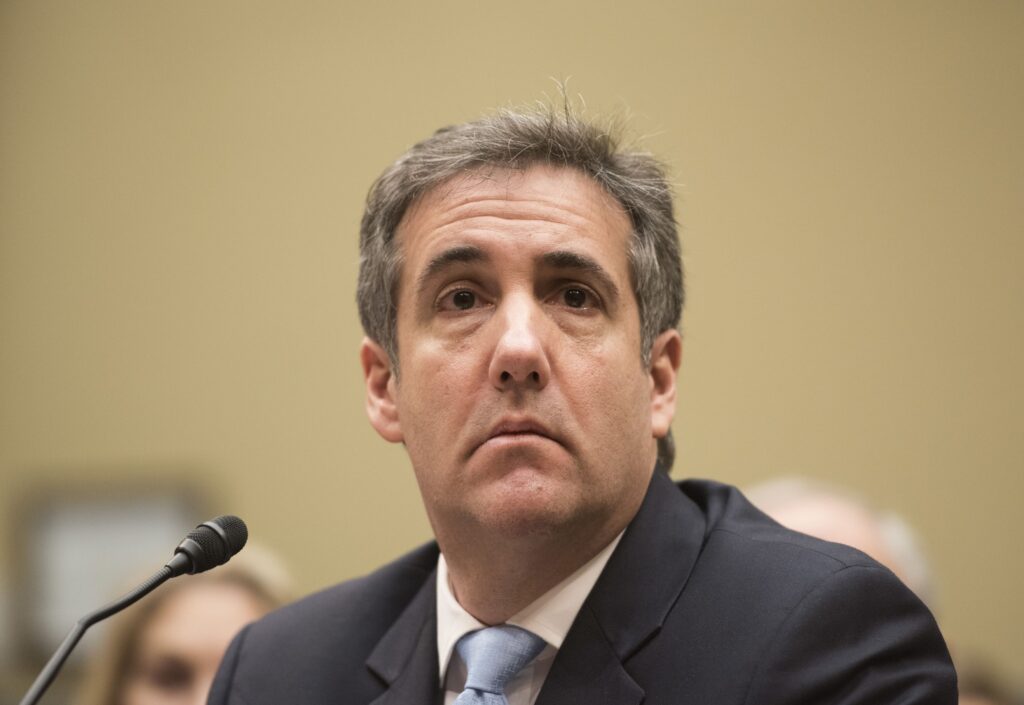
Cohen and Trump, aware of how devastating Daniels' testimony would have been for the election campaign, especially in the context of the vile recording, agreed to buy her silence, preventing her statement from reaching voters before the vote.
Cohen, with Trump's approval, established a phantom company named Essential Consultants and transferred $130,000 to Keith Davidson, Stormy Daniels' lawyer, as stated in the Manhattan prosecutors' indictment.
Cohen used false information and records to conceal the true nature of the phantom company and the payments made through it. Phone recordings presented at the trial and witness statements proved that Trump was aware of every step taken by his lawyer, announce the prosecutors who investigated the case.
After winning the election, Trump paid Cohen through a series of monthly checks, first from the Donald J. Trump Revocable Trust account - created in New York to hold Trump Organization assets during the presidency - and later from the personal bank account of the incumbent President Donald Trump, as specified in the indictment.
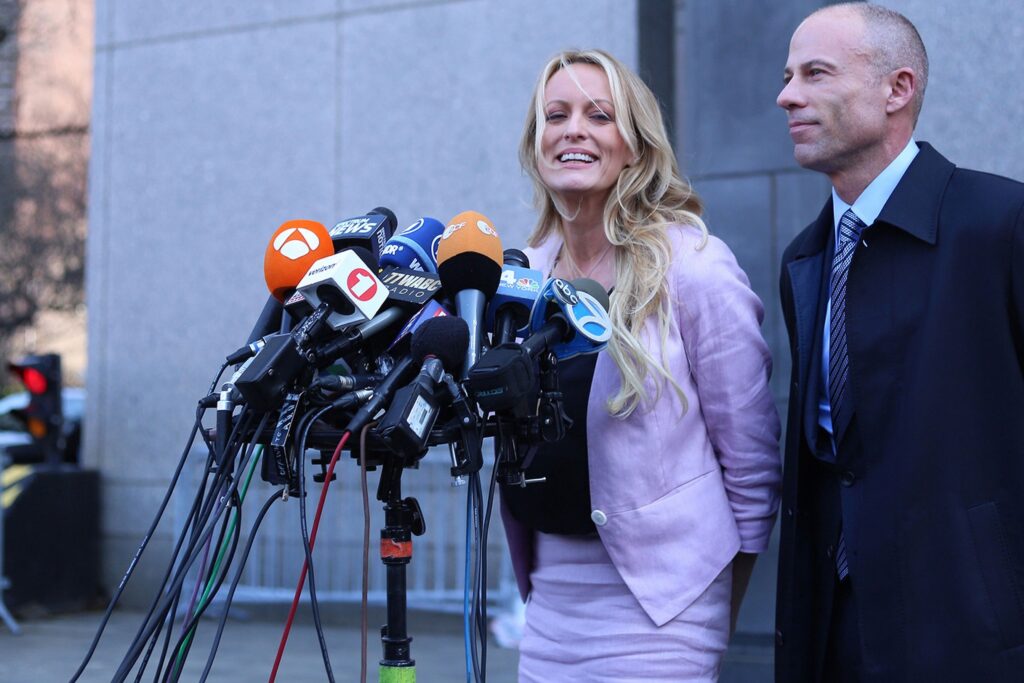
In total, 11 false checks were issued. Each check was processed by the Trump Organization and was recorded in accounting, illegally, as payment for legal services provided under a non-existent contract.
In total, 34 false accounting entries were made to conceal the $130,000 payment. Cohen received a total of $420,000, so he would be compensated for the initial payment. The $420,000 was recorded as income, being taxed, as announced by the Manhattan prosecutors, New York.

